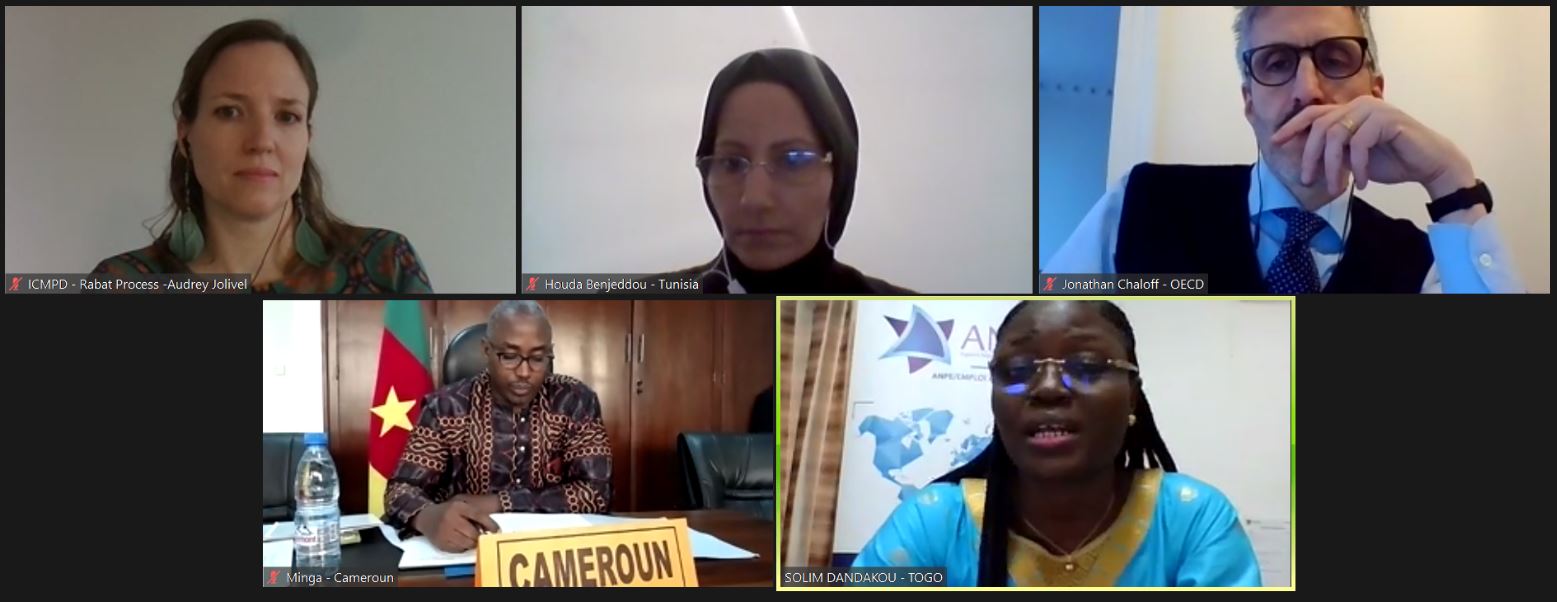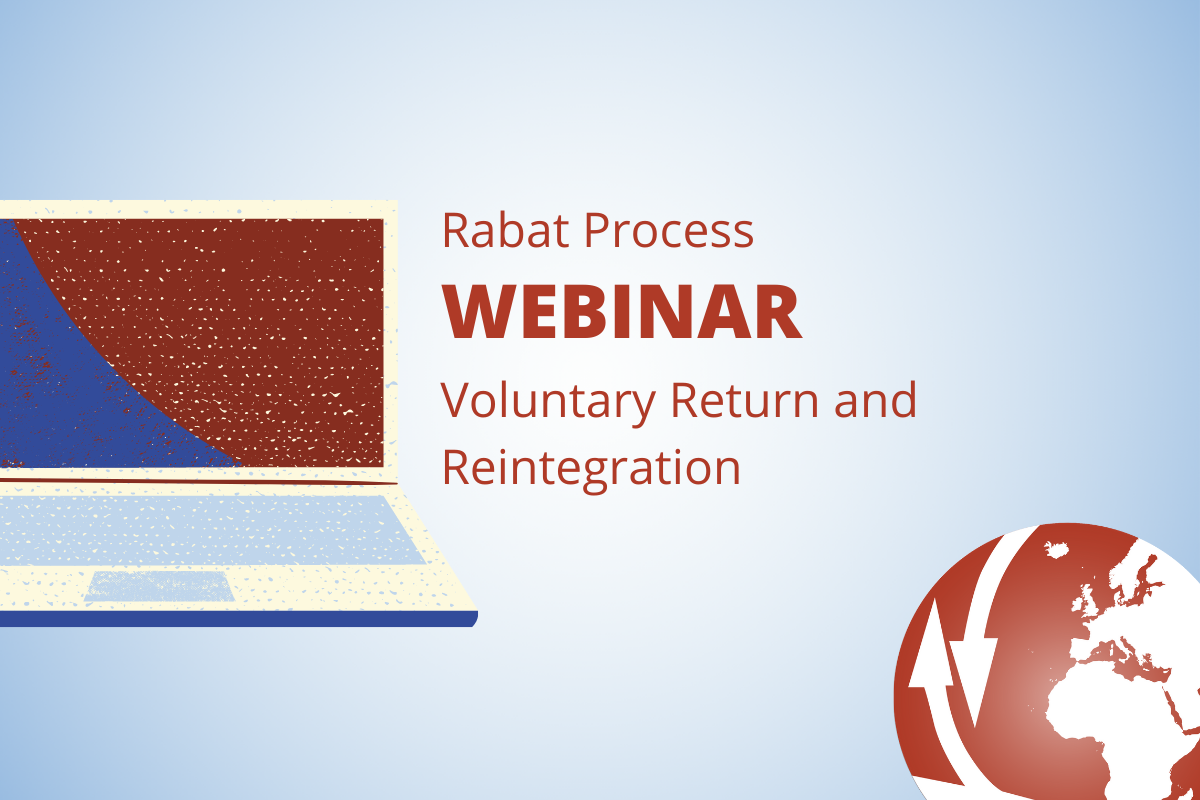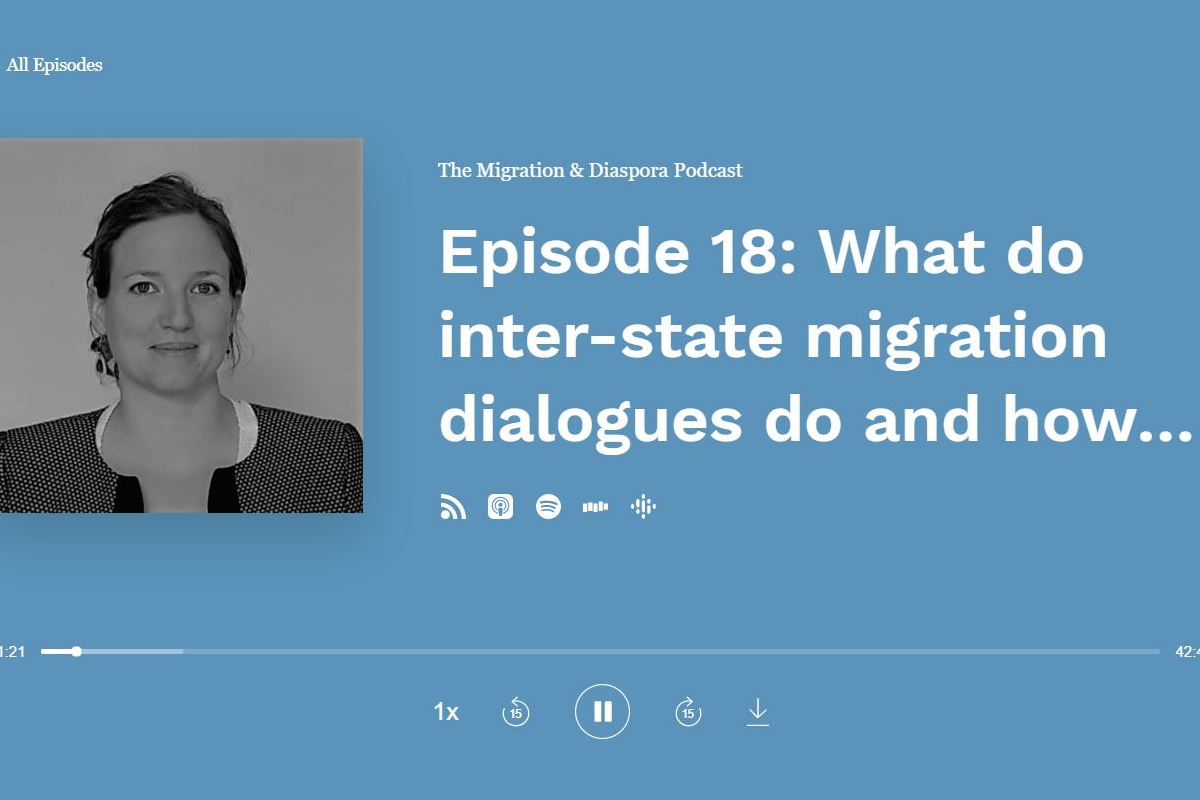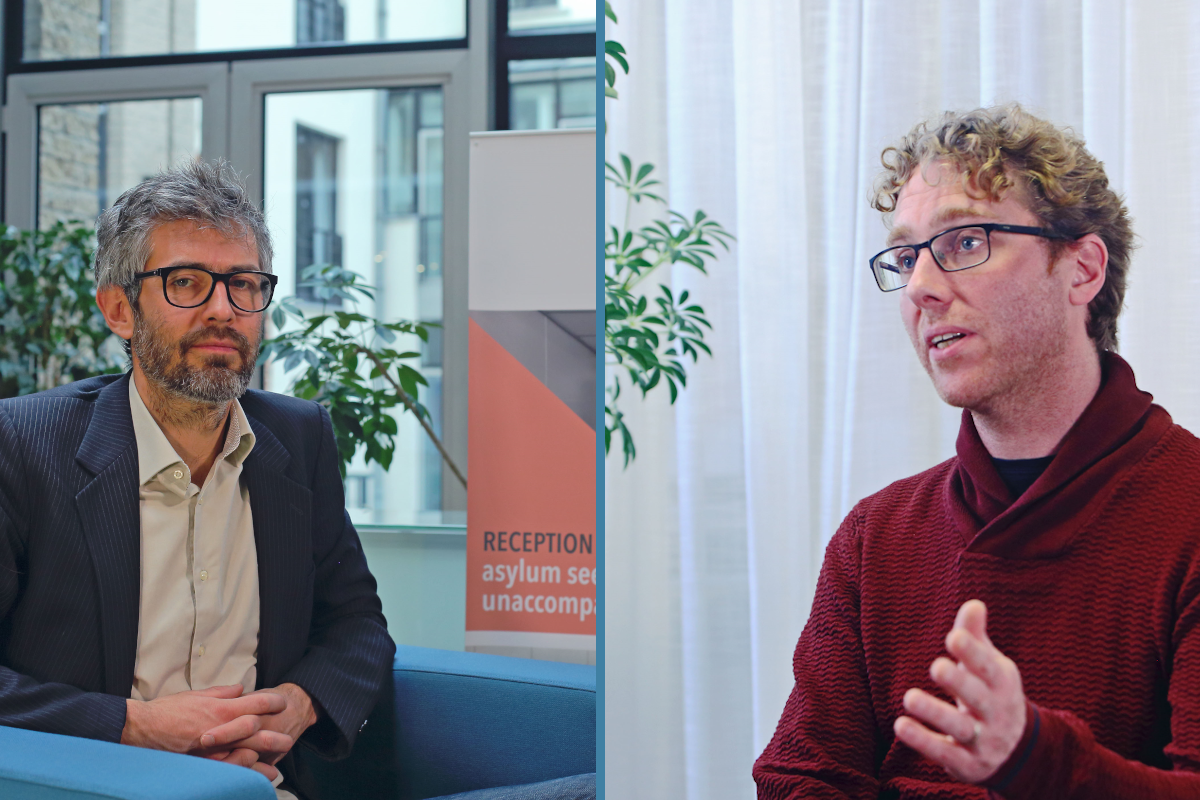The webinar on Voluntary Return and Reintegration held on 21st January 2021 was the first-ever Rabat Process activity, which was open to all interested policy-makers, practitioners and academics, in addition to the Rabat Process core stakeholders. The event attracted a diverse audience of more than 80 participants logged in from the different regions of the Rabat Process.
The newly released outcome report outlines the key takeaways of the webinar along with identified challenges and good practices for ensuring the successful reintegration of returning migrants, including specific key factors for the success of voluntary return and reintegration (VRR) programmes.
Panel discussions: VRR policies and practices
The virtual event was organised as an alternative to the thematic workshop that was scheduled to be held in Yaoundé (Cameroon) but was postponed due to the COVID-19 pandemic. Practitioners and experts from international organisations and partner countries shared their hands-on experience and reflections during two panel discussions covering:
- Panel 1 – Return and reintegration in the Rabat Process regions: between the health crisis and the EU New Pact – what are the emerging issues?
- Panel 2 – How to ensure the success of voluntary return and reintegration?
The first panel addressed policy developments in the EU and the ECOWAS region as well as the COVID-19 health crisis and examined the impact of these factors on the delivery of VRR programmes and initiatives such as the European Return and Reintegration Network (ERRIN). The second panel looked at concrete examples of VRR programmes and practices, featuring lessons learnt from France, Togo, Tunisia and Cameroon, as well as insights from the OECD’s latest report on the sustainability of reintegration programmes.

Success factors of VRR programmes
Based on the panel discussions, a number of conclusions could be drawn regarding the success factors of VRR programmes:
- Multi-stakeholder approaches throughout the VRR cycle and strong coordination between host and home countries.
- Development support for local communities hosting returning migrants.
- Effective referral of migrants to relevant institutions and socio-economic reintegration support, which is tailored to their capacities and needs and monitored over time.
- Awareness-raising and creation of favourable attitudes and conditions (e.g. among government, future employers, family members) for returning migrants. This is likely to decrease the probability of another migration attempt.
- Innovativeness and creativity to ensure the continued assistance of returning migrants (e.g. digital solutions: virtual counselling, consent-recording online tools).






